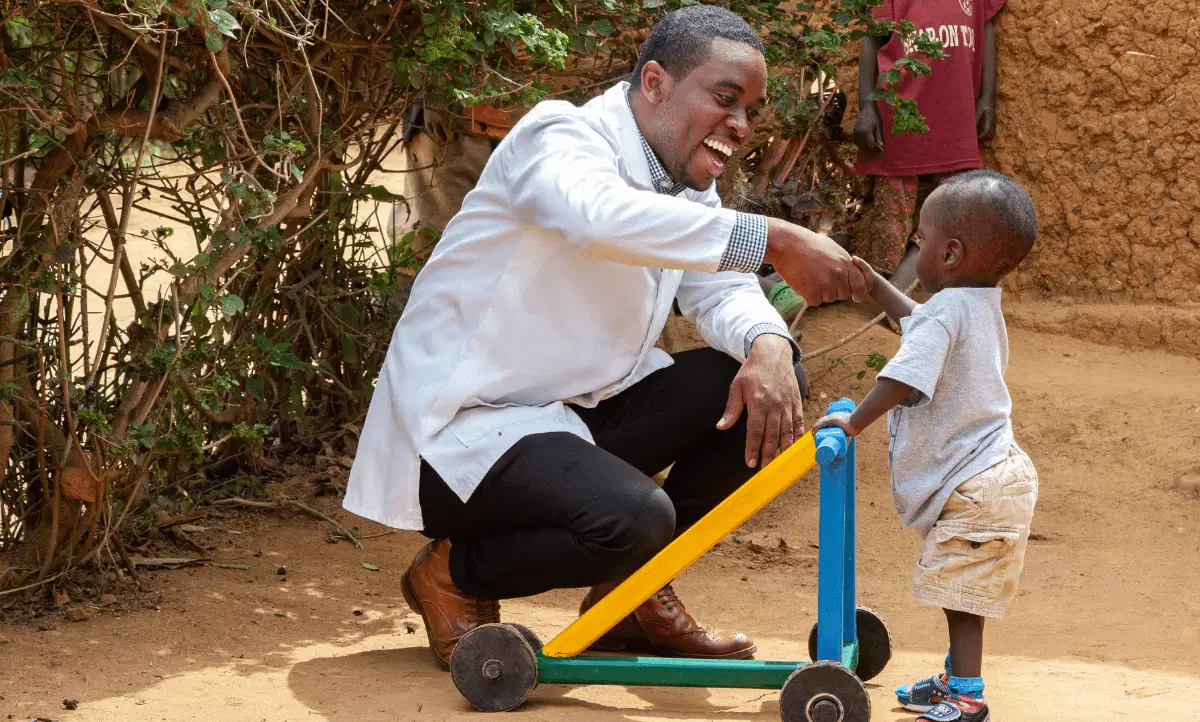The Rwandan genocide in 1994 orphaned thousands of children across the country, leading to a surge in orphanages.
A study showed that a staggering 80% of children in these orphanages were not orphans but children put in institutions because their parents couldn’t cope with them at home. Sadly, 90% of these children were never prepared for independent living. They were at risk of abuse and neglect, and half of those that did leave ended up in conflict with the law and homeless. In 2012, the Rwandan Government recognised the harmful nature of orphanages and launched a National Child Care Reform promising to close all orphanages and, where possible, reunite children with their families.
As award-winning experts in Inclusion and Disability, we were asked to work in partnership with Unicef Rwanda to identify children with disabilities that had been reunited with their families or were living in communities and to prioritise family-based care for each child.
Every child deserves love, support, education and attention from family and their communities
Thanks to your support, we identified over 6600 children in two districts who urgently needed help. These children required medical referrals and physical, speech and language therapy, and their parents and carers desperately needed guidance and training to better look after them.
Because the number of children needing support was so large, we set up Parent Support Groups within the communities so that over 4000 parents could come together to support each other. This has been an essential part of the project because we were able to break down the long-held stereotypes and stigma about disability. We have taught families that there is no shame in disability and that every child deserves love, support, education and attention.
Many parents struggle to get their children to medical centres because they live in remote areas and can’t afford transport. “The Parent Support Group has provided a solution to many of the struggles I faced,” 14-year-old Madeline’s mother told us.
I have a physical disability, a daughter with disabilities, and I live with my sister, who also has an intellectual disability. Managing such a scenario as a widow is difficult. After joining the parents’ groups, I learned how to care for my daughter. Members of the group assisted me with transportation to the hospital for my child, and I received funds from my community to assist me in feeding us while in the hospital. I wish we keep working with Chance for Childhood. The comfort they give, the advocacy they do, and the skills they provide to us are needed. I thank them how they collaborate with the government to change the lives of our Children experiencing disabilities.Patricia, a parent who is part of the family support groups



In addition to establishing locally run support, we employed two physiotherapists to work in the community to give regular rehabilitation to the children. The physios could identify where children’s lives could be instantly improved, and we provided 220 children with locally made assisted devices. These children can now sit up and be fed without choking. They can stand securely and, with the help of walking frames and crutches, be mobile. Not only does this improve a child’s physical health, but it has had an incredibly positive effect on their mental health and self-esteem.

